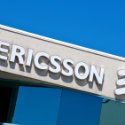
There is little talk of revenue growth at Ericsson these days. The Swedish vendor's number-one mission, it has made clear, is to restore profitability at its loss-making operation. But that partly means safeguarding the most important deals and protecting market share. In China, it has gone a step further. Entirely on the offensive, it has embarked on a land grab that risks backfiring.
The publicly disclosed details of this plan are straightforward. By increasing its share of business in China's vast 4G market, Ericsson AB (Nasdaq: ERIC) aims to squeeze out rivals before telcos start to invest in the next-generation 5G standard. A newish platform called Ericsson Radio System (ERS) can be "software-upgraded" to support 5G as that becomes available, says Börje Ekholm, Ericsson's embattled CEO. An operator that buys ERS today has an economic incentive to stick with Ericsson when 5G turns up -- or so Ericsson believes.
Figure 1: Chinese Dreams  Börje Ekholm, Ericsson's CEO, is positioning the Swedish vendor for a key role in China's emerging 5G market.
Börje Ekholm, Ericsson's CEO, is positioning the Swedish vendor for a key role in China's emerging 5G market.
China's size and technological ambition make it hugely important to the world's network equipment makers, the biggest of which are now Ericsson, China's Huawei Technologies Co. Ltd. and Finland's Nokia Corp. (NYSE: NOK). Thanks largely to China, Ericsson's northeast Asian business accounted for a substantial 12% of the 47.8 billion Swedish kronor ($5.7 billion) the company made in overall sales between July and September. China's operators have recently been responsible for much of the global spending on the rollout of 4G networks. They are now eyeing 5G technology, and could launch commercial services in the next two or three years.
Ericsson's latest China strategy has already given a boost to its market share, the Swedish vendor claimed in its latest earnings report. That appeared to have negative consequences for Nokia, which last week partly blamed competition in China for pressure on sales. Yet Ericsson's land grab is coming at a cost. To spur interest in ERS, Ericsson appears to be offering some generous deals to China's operators. In the final three months of the year, it expects its gross margin in China to suffer. (See Nokia Share Price Tanks on Networks Gloom.)
If this does lead to profitable 5G deals in future, then Ekholm will be vindicated. But not everyone sounds convinced. During an earnings call earlier this month, Francois Meunier, an analyst at Morgan Stanley, was concerned to know whether Ericsson is effectively giving away its ERS hardware. "We are preparing for 5G and that will come on top of 4G. It is critical that we establish market share in 4G," was all Ekholm would say when quizzed aggressively by Meunier on the subject.
The analyst's anxiety is perhaps not surprising. Several years ago, says Meunier, Ericsson offered similarly generous arrangements to European customers under former CEO Hans Vestberg. "[Ericsson] gained a bit of market share for a year or 18 months but it didn't work in the long term," Meunier told Ekholm during the earnings call. "What gives you the confidence this time that giving away equipment gives you a lasting market share advantage?'
With that question left unanswered, observers may now wonder if Ericsson is playing a dangerous game. ERS currently accounts for about 55% of total radio shipments, and that figure is expected to hit 100% next year. But convincing customers to use a product is much easier when it is sold on the cheap. Organizations are willing to spend heavily on something they truly value and plan on sticking with for years.
Next page: Risky business
Risky business
Another danger is that spending in China does not recover as quickly as the industry would like. Although China's operators have made huge investments in 4G networks, rollout activity has slowed down now that services are widely available. Having collectively spent 356.2 billion Chinese yuan ($53.5 billion) in 2016, China's three big national telcos expect capital expenditure to fall to RMB310 billion ($46.6 billion) this year. If operators are already deploying much of the hardware that will support 5G, as Ericsson suggests, then a spending boost following 5G standardization seems improbable.
Ericsson's messaging on this front has been somewhat mixed. On the one hand, it expects total sales in the market for radio access network equipment to shrink just 2% in 2018 and stabilize in 2019, following a decline of 8% this year. Yet it has also said that 5G will be introduced slowly, and that it will not spur much investment by telcos unless their revenues also grow, reversing the sales decline of the last few years. (See Ericsson CFO: Automation Is Helping Us Cut Jobs.)
Its outlook also looks optimistic next to that of Nokia. Reporting earnings last week, the Finnish company warned investors that its mainstream networks market is set for a likely sales decline of between 2% and 5% next year. Unlike Ericsson, Nokia has a major presence in the fixed-line and IP-based equipment sectors. But it blamed tough conditions in mobile, including price-based competition in China, for its despondency. The update wiped more than 17% off Nokia's share price on October 26. It sent Ericsson's share price down 4.4% on the same day.
For all the latest news from the wireless networking and services sector, check out our dedicated mobile content channel here on Light Reading.
These sales concerns do not mean that a push for market share is mistaken. And if a hardware assault today positions Ericsson for software expansion in the future, its margins could benefit. But as rivals inevitably respond to Ericsson's onslaught, conditions will only get tougher. Protectionism is a further worry. As spending gets squeezed, China's state-backed operators may come under pressure to give an even bigger share of deals to Huawei and ZTE, the country's homegrown technology champions.
Investors are not panicking. Indeed, after Ericsson revealed signs of progress at its networks business in the recent third quarter -- including a slight increase in sales after currency and other factors were stripped out -- its share price received a rare boost in Stockholm. At SEK51.70 ($6.17) on October 26, it was trading about 3.4% lower than at the start of the year, when Ekholm took charge. (See Ericsson Sees Networks Progress Despite Mounting Losses.)
With his background in finance and management consultancy, Ekholm described himself as a telecom "rookie" at this year's Mobile World Congress. If he can overcome the doubts, and find success in the world's biggest telecom market, he will have outperformed some of the industry's most grizzled veterans.
— Iain Morris, News Editor, Light Reading
About the Author(s)
You May Also Like











